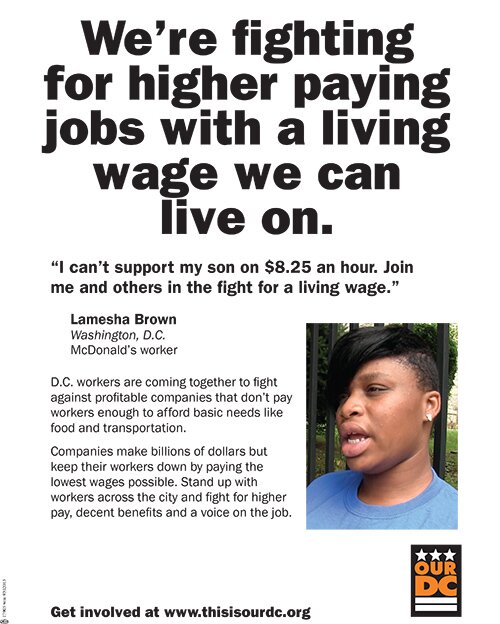Sarah Jaffe is a staff writer at In These Times magazine and the co-host of Dissent magazine’s Belabored podcast.
McDonald’s might raise its wages, according to its recent filing with the Securities and Exchange Commission. Wal-Mart is considering supporting an increase in the minimum wage, or at least that’s what spokespeople for the company have been floating in recent interviews (though at other times the company has denied this). It seems that strikes and multiyear pressure campaigns by low-wage workers have some impact on their employers. McDonald’s even admitted as much; the SEC report noted “increasing public focus on matters of income inequality” and worker actions were affecting their public image. Labor organizing, often declared dead on arrival, is having some impact. Even President Obama’s decision to raise the minimum wage for workers under future federal contracts was inspired by seven different strikes by low-wage workers at places such as the Smithsonian and the Pentagon.
Not that you’d know it from stories in Politico, Bloomberg, NBC News and elsewhere. Strikes and worker organizing were nowhere to be found in their reports.

 By Sarah Jaffe, Washington Post
By Sarah Jaffe, Washington Post